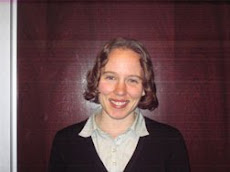
My first day investigating this story began in the West Bank city of Hebron, which has been a focal point of violent conflict between Palestinians and Israeli settlers. European peacekeeping troops patrol the border areas to prevent further bloodshed.
The old markets in the Palestinian area of Hebron are covered with fencing because Israeli settlers who live in the buildings above the markets sometimes throw rubbish and rocks at the Palestinians shopping below.
I originally imagined that my story would focus on a shopkeeper in Hebron who felt humiliated and conflicted about the necessity of selling both Jawwal phone cards and Israeli phone cards. The Israeli phone companies operate in the Palestinian Territories without permits from the Israeli government, and hence do not pay taxes or license fees to the Palestinian Authority.
Because Jawwal phones cannot get reception in much of “Area C,” which is reserved for Israeli military posts and settlements, and because Jawwal charges high rates for calls to Israel and other foreign countries, many West Bank Palestinians carry Israeli phones.
In talking with civilians and shopkeepers in Hebron, however, I found that few carried only an Israeli phone. Most carried two phones, a Jawwal phone and an Orange or Cellcom phone, and used the provider that would offer the cheapest rate based on who they were calling and where they were calling from. Carrying two phones was especially common among the international development workers and peacekeepers in the city.
Almost universally, Palestinians told me they paid too much for phone cards and that Jawwal’s service, while strong in some areas, was spotty in others.
On my second day in Hebron, I met with a Jawwal salesperson named Mahmoud Mujaheed. With typical Arab hospitality, he invited me into his home, where we sat on couches in a spotless living room adorned with his wedding pictures and Quranic calligraphy. To my surprise, Mujaheed was not upset, but excited for a new competitor to enter the cell phone market. He even had a cousin and a friend who were employed by Wataniya.
“Business is beautiful if there’s competition—better prices and service,” Mujaheed said. “The second point is that it creates new jobs.” But, he added, “Jawwal will be the best!”
On my way out the door, Mujaheed tried to give me a couch pillow in the shape of Jawwal’s logo. I declined the pillow, but asked to take a picture of him holding it—and he eagerly agreed.
Lesson for this student journalist: Don’t be surprised when your preconceptions about a story are completely dashed!

%5B1%5D.jpg)
No comments:
Post a Comment